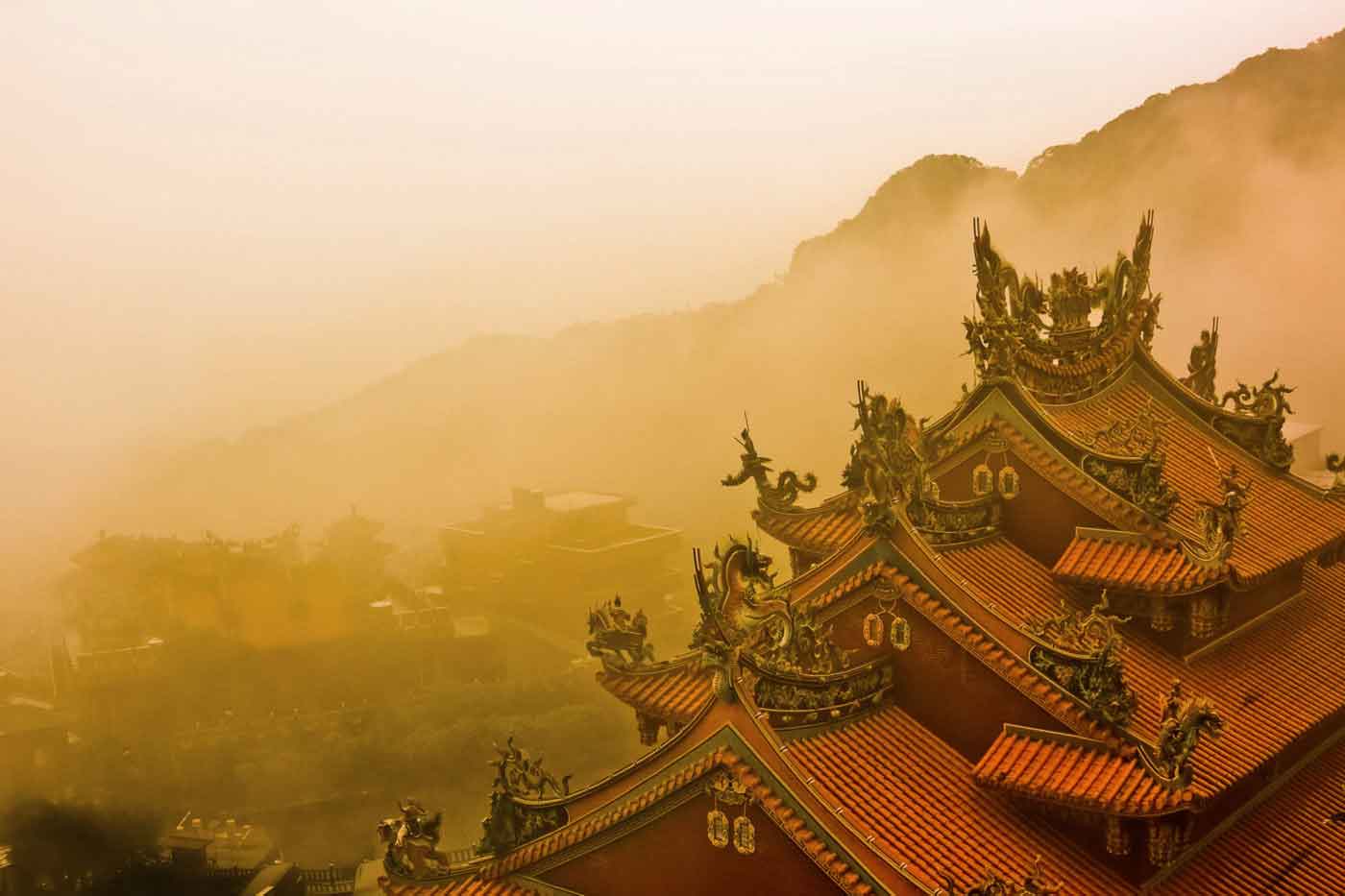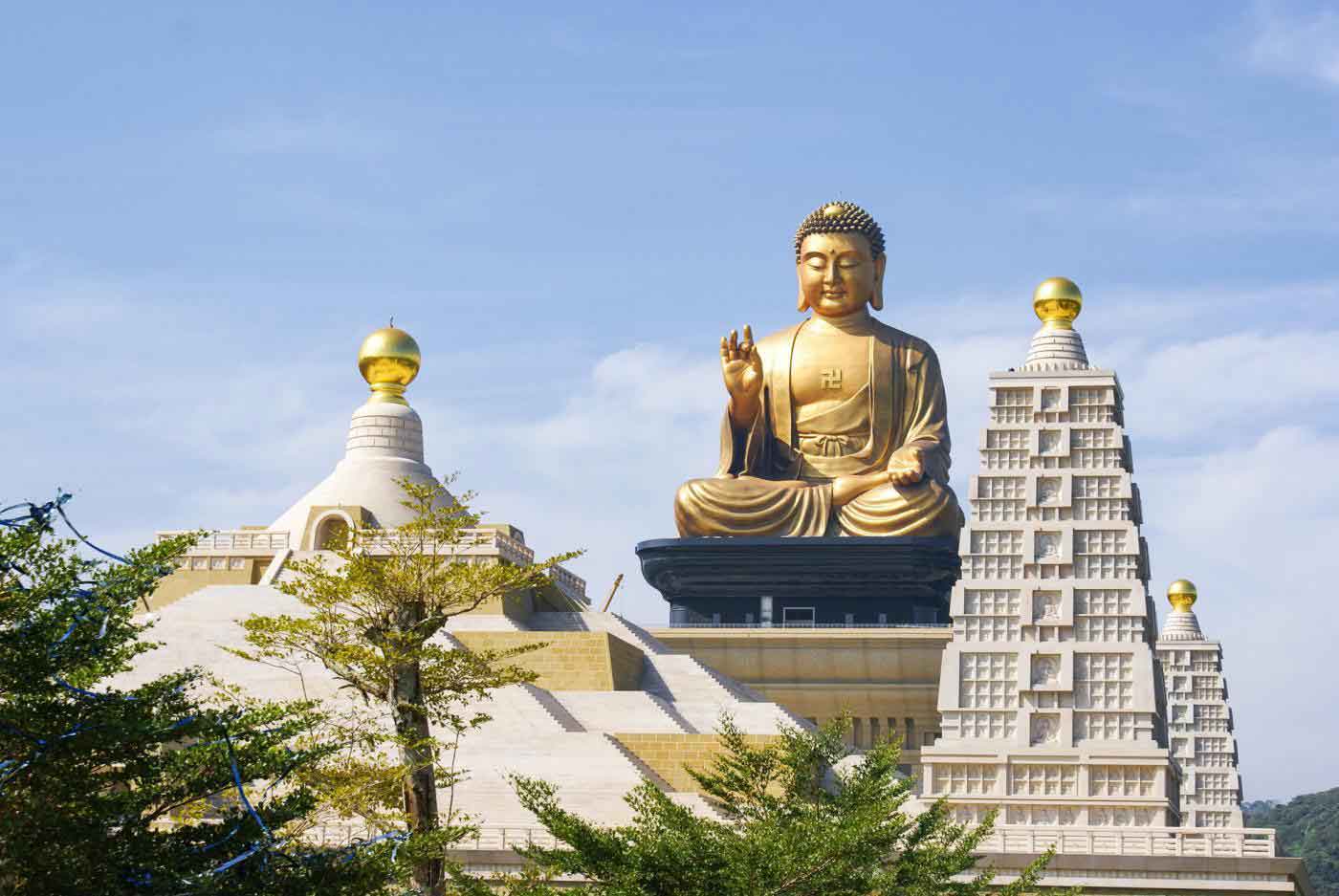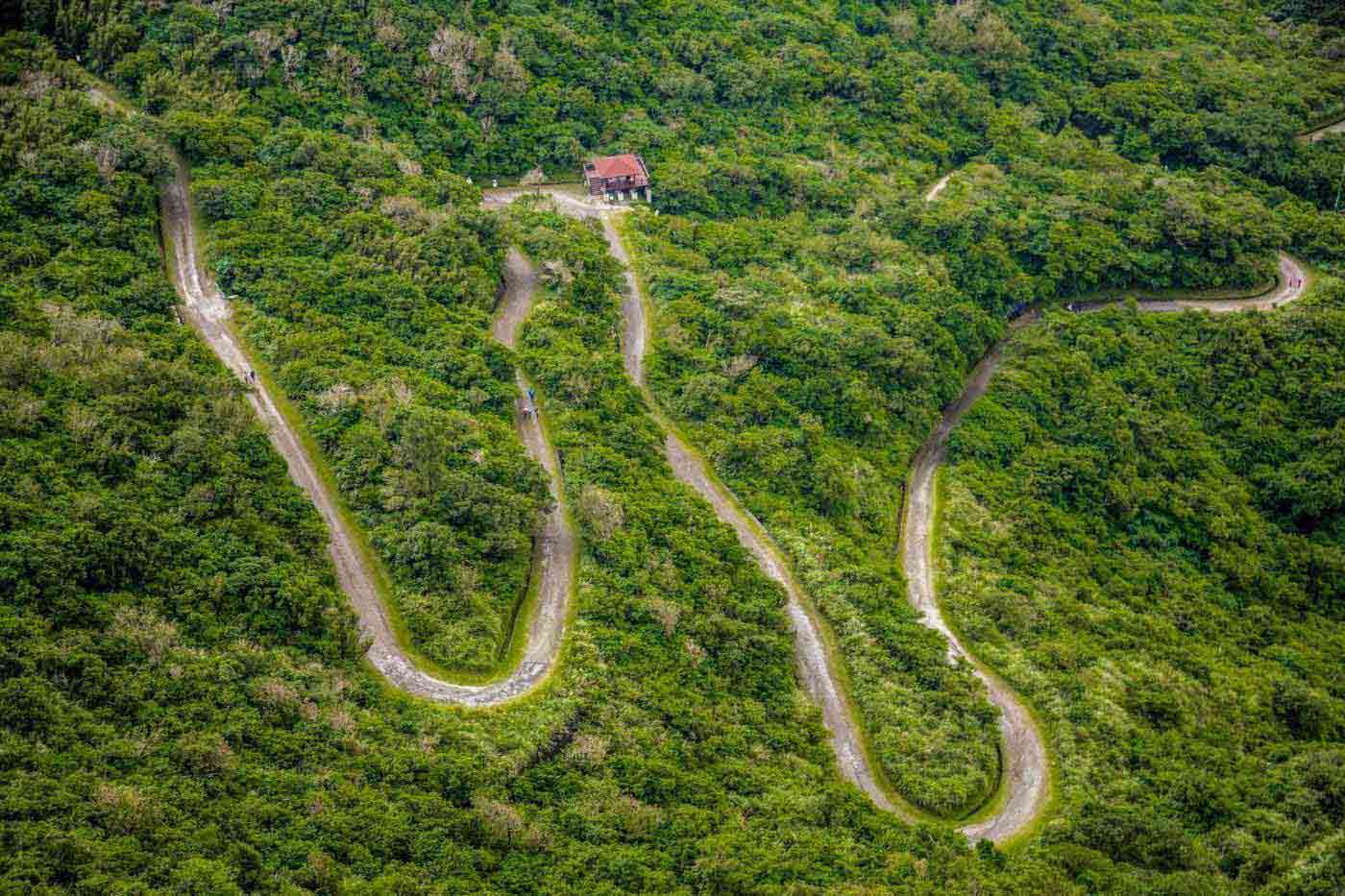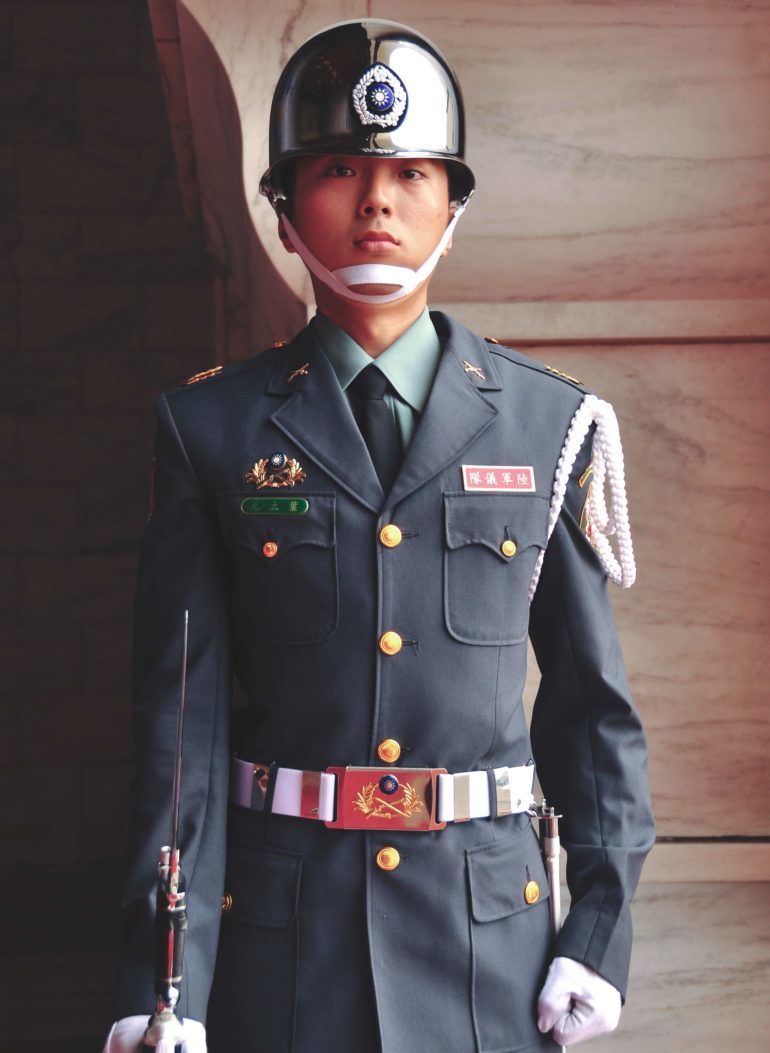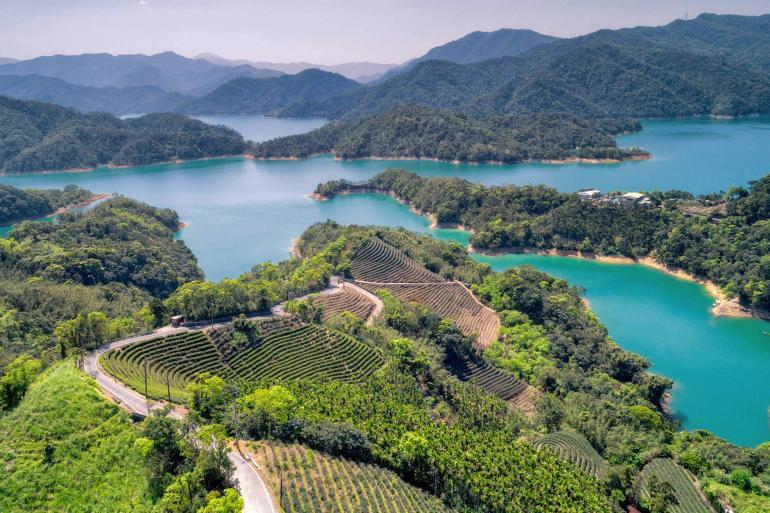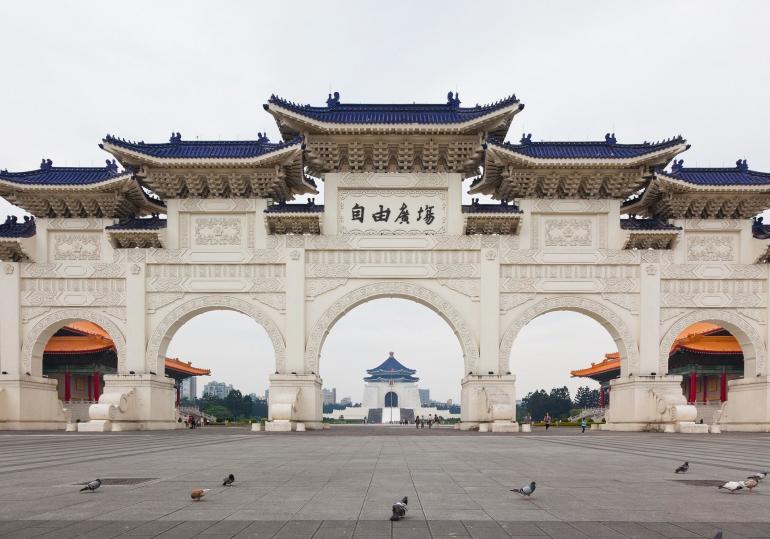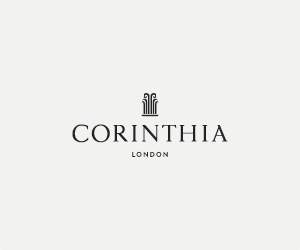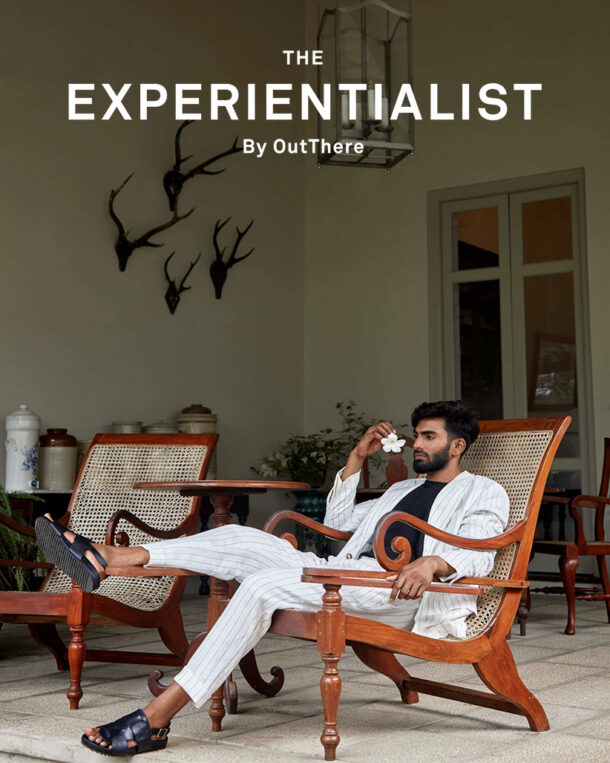Intrigued by Taiwan’s growing reputation for being overlooked and underrated, Zack Cahill sets out to see it for himself and finds this island-nation full of surprises – it’s East Asia, but not as he knows it.
The 1998 film Sliding Doors follows a young Gwyneth Paltrow through two separate parallel timelines. In one version of reality, Gwyneth boards her train on time and arrives home to catch her boyfriend cheating. She has a minor breakdown, chops her hair daringly short and dyes it blond, falls in love with a new man and (spoiler alert) eventually gets run over by a van. In the other timeline, she never catches the train, stays the same mousey-brown wallflower and never discovers her boyfriend’s infidelity.
It’s a premise that opens up all sorts of questions. Is there such a thing as fate? Can we ever find true love? How were Barbie Girl-band Aqua ever a viable pop sensation? But chief among them is the question of parallel worlds: do they really exist?
I believe so, because I’ve visited one; it’s called Taiwan. Taiwan is a China where the Communist Revolution never occurred. Where they never boarded that particular train and, instead of a blond bob, they got capitalism.
Taiwan is a mere 110 miles from China. The two were, in fact, connected during the glacial age and the skeletons of gigantic mammoths lurk in the shallows between the two countries. In 1949, after the Communists gained control of the mainland, the Republic of China government, under Chiang Kai-shek, settled here, along with two million refugees. As a result, many Taiwanese consider themselves the ‘real’ Chinese. The US, always happy to see Communism get one in the eye, provided huge military and financial support during the 1940s and 50s, so that in time Taiwan outgrew its perception as a manufacturer of cheap goods and became an economic monster. I think I’ve got that right, anyway.
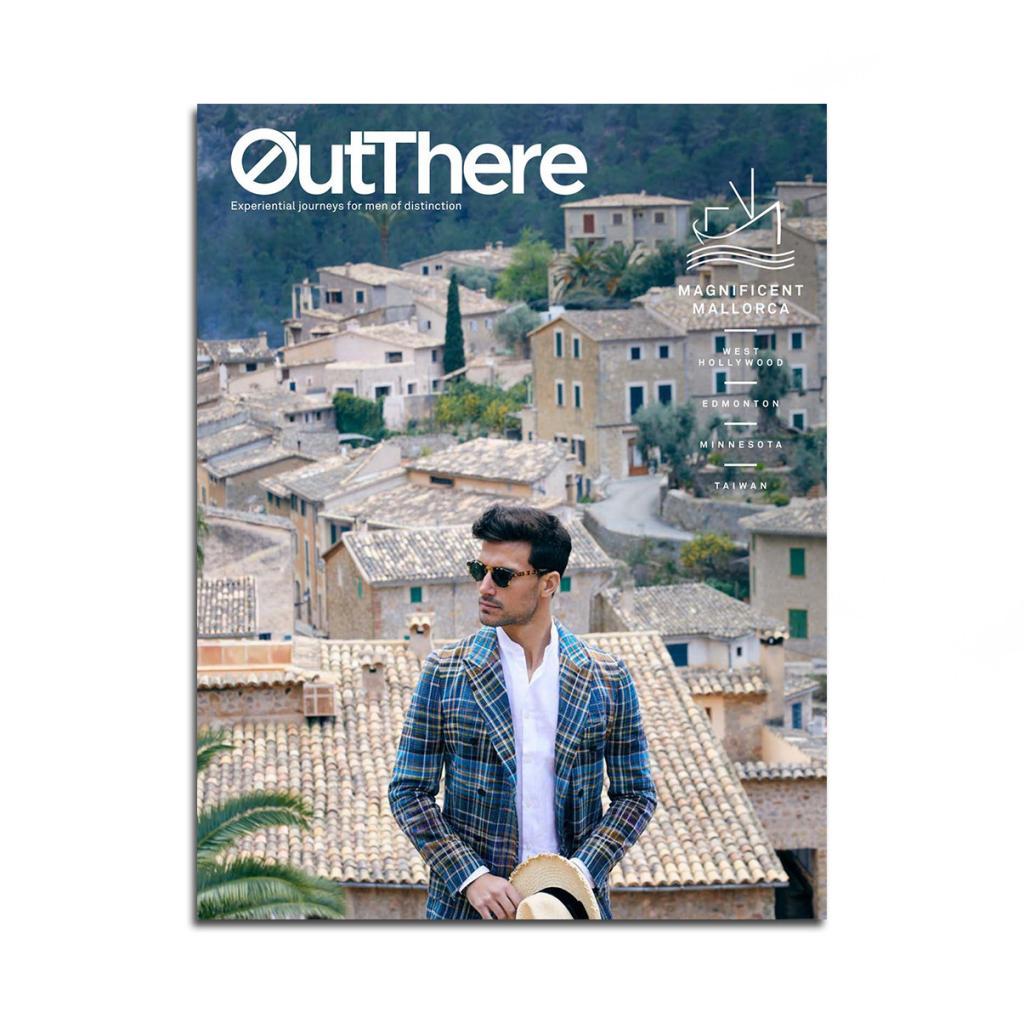
This story first appeared in The Magnificent Mallorca Issue available in print and digital.
Subscribe today or purchase a back copy via our online shop.
My guide, Lily, is giving me this historical rundown in a van at about 90mph. That’s her word rate, not the vehicle’s speed. After a sleepless 14-hour flight, I’m not best prepared to absorb it. A tiny, garrulous woman somewhere in her forties, Lily is not shy of injecting her opinions into the flow of dry statistical information. Some brief highlights include:
People in Taiwan are too free. They don’t wear sunscreen because it pollutes the sea. They prefer pets to kids because you don’t have to pay for your pets’ education. And then a lengthy rant about gay marriage, including the line ‘why give up a forest for a tree?’
It’s all pretty amusing, but too fast-paced for my weary, jet-lagged brain and I ask for a little respite. The silence lasts for all of 30 seconds before Lily launches into another anecdote. This will be a regular thing. There will be a lot of driving on this trip.
A dreamless sleep in a lavish Taipei hotel and several litres of intravenous coffee later, we’re back in the van and on our way to Kaohsiung.
Kaohsiung teachings
The Fo Guang Shan monastery, in the south of the island, is the largest Buddhist monastery in Taiwan. Built on uneven, unloved ground by Master Hsing Yun, who relied on contributions from friends and benefactors, the place is now a sprawling private enterprise where hundreds at a time come to study and attend events. All around us, monks glide about on golf carts, sit quietly in tranquil lotus gardens and do tai chi on the manicured lawns.
Lily introduces me to Yi Jih Shih, a Buddhist nun with the title of ‘the Venerable’. They have a warm relationship; Lily brings her some ice-cream as a gift. We pile into a golf cart and head off on a tour.
“Master Hsing Yun was self-taught,” says ‘the Venerable’. “He educated himself from books he found in the rubble after the war.”
Hsing Yun used calligraphy to spread his teachings, writing hundreds of books by hand. We have a go at calligraphy in a quiet classroom. It’s a bit touristy, but sets the right, calm ambience.
You’ll be unsurprised to hear that monks who have dedicated their lives to ascetic servitude and the achievement of inner peace tend to come off as pretty chilled individuals. ‘The Venerable’ seems like she’s on rails, wafting around corners with her robes swishing gently, speaking softly, smiling at all who pass. She jokes around a lot. Buddhist humour is pretty subdued, as you can imagine, but she certainly cracks herself up. I’ll admit to a bit of cynicism about spirituality or at least the patronising veneration of ‘Eastern wisdom’. But ‘the Venerable’ is an undeniably calming presence and often speaks in genuine, lucid prose. Of this temple, she says:
“The lotus flower grows in dirt. Don’t run away from problems; they can be our nutrition. This monastery was made on terrible land. Nobody wanted to come. Hsing Yun was suicidal, but people helped him and it worked. We have so much potential, but people keep looking outside. In our inner world, we have everything we need. You are rich in spirit. You are your own master.”
As we leave, she tells us, “Be a vehicle – help others to the other shore on a big ferry, not a bicycle”.
Sadly, the ferry we take the next day to Penghu Island does not bring enlightenment, only extreme nausea.
Penghu adventure
It’s been a long drive to the ferry, we’re not feeling our best and the sea isn’t helping. About half an hour into the two-hour journey, Poseidon has claimed multiple victims. The sound of passengers losing their lunch is getting too much and I’ve broken into a cold sweat. I need to get out.
The plastic floor is sodden with human ejecta and my flip-flops pop and suck and stick as I slip-slide to the bathroom. A child screams and erupts a roiling litre of liquid hell. All around me a battalion of miniature Linda Blairs scream while their mothers, pale and sweating, clutch them weakly to their chests.
On dry land, we are fed a lunch of seafood that would probably be delicious in the normal run of events but, given our current state, might as well be the meal from the Temple of Doom – all tentacles and eyeballs on stalks.
The prospect of another four-hour round trip in the van is raised, this time to see a windmill.
Inside me, something snaps. Someone says, “I’m not getting back in the van”. I notice everyone is staring at me and realise the voice was my own.
Instead, I go to a picturesque beach and try to summon the zen wisdom of the venerable Yi Jih Shih. Eventually, I give up and summon a taxi and then room-service.
If you want to experience the difference between East and Southeast Asia, try watersports. There’s a relaxed permissiveness that pervades much of Southeast Asia. If your boat is pulling into a pier, they’ll often just let you hop off when it looks safe. They’ll trust you not to do something stupid. East Asia, at least in my experience, is the polar opposite. Maybe it’s a result of population density or cross-pollination with communism, but you will occasionally find yourself being treated like a moron with no sense of self-preservation. Which is why snorkelling probably isn’t the best option. But here I am, on the back of a boat chatting to Anthony, our snorkel ‘coach’, a friendly young guy wearing a headband without irony.
Anthony is bubbly and friendly, but he emphasises several times how important it is to stay right by him when we are in the water. It turns out he wants us to hold on to a little rubber ring and be dragged about, rather than propel ourselves with our arms and legs – you know, like swimming. As a result, most of our party ends up getting cold and bored and heading back to the boat, despite the waters being amazing and the coral reefs unspoilt. It’s a tiny issue, a non-event really, but emblematic of a running theme. But if you’re heading to Penghu of your own accord, it does offer more than 200 miles of pristine, white-sand beaches and cerulean waters that are home to an incredible array of tropical fish, marine plants and coral reefs.
Back to the city
We head back to Taipei for a final jam-packed day. Everyone jokes about temple fatigue, my own notes contain the helpful and evocative line, ‘Confucius Temple, yet another temple’, so I’m no stranger to the ailment. But the Longshan Temple in Taipei is well worth your time. It’s a modest, low-rise, red-and-gold building with all the dragon and tiger adornments you’d expect. But it’s interesting as a community hub and for the peculiar rituals you’ll witness within.
Taoism is a polytheistic tradition: there are gods for everything from exams to health, to doctors. Many of those gods have individual shrines at the Longshan Temple. The shrine you pray at will depend on what you need. It’s like a metaphysical market bazaar. Long lines of young women queue up for the matchmaker god to ask for a boyfriend or husband. Elsewhere, expectant mothers try to get the goddess of fertility to nudge the sex of their baby one way or the other, leaving flowers if they want a girl or sticky rice if they’d like a boy.
In front of one shrine, an old woman kneels, rattling two halves of a wooden shell in her liver-spotted hand and dropping them on the tiles. One side is convex and the other flat. If they land with matching sides, the answer to whatever she’s asking the god is ‘no’. If one side lands convex and the other flat, it’s ‘yes’. The woman repeats the process half a dozen times before nodding to herself. Turns out, you can keep asking until you get the right answer. The process is merely advisory then, like an Irish referendum.
The Chiang Kai-shek Memorial Hall is no slouch, either. It’s a huge, imposing hall dedicated to Taiwan’s founder. A gigantic statue of him sits in the main room, gazing down at us like a benevolent god. We are lucky enough to catch the changing of the guard and it’s quite something. Immaculate soldiers in white uniform carrying out complex choreography, stomping and swinging their guns about. It’s all very solemn, but it still reminds me of an early-1990s Janet Jackson video.
We take the sky-car high into the mountains, floating over a vibrant forest. At the top, we stop for a rather delicious lunch at the Mao Kong Liu Ji Xiang Tea Restaurant, a family-run business. Mr. Liu himself is here, smiling at us under his Roy Orbison-haircut. I sip an ice-cold beer, looking out over the lush jungle that threads through the heart of Taipei, as though nature herself were reclaiming the gleaming city.
For our last night, myself and some friends head to the gay district in Ximen, or the ‘rainbow area’, as Lily modestly refers to it. We meet Teddy, a high-heeled cocktail barman with hair like a Kardashian and legs like a catwalk model. He’s fascinated by us and effectively shuts the bar down so he can drink with us. Teddy loves Taipei. He tells me there’s still progress to be made, but it’s generally tolerant. There’s no gay marriage, but a form of civil partnership was legalised back in 2017.
“As long as we don’t kiss in front of a church, they’re fine,” he says with a shrug and a waft of cigarette smoke.
The Taipei section of our trip is smooth and polished. It’s all temples, night markets and skyscrapers; everything you’d expect from a hyper-modern Asian city. Outside Taipei, there were hiccups. Had we been Americans paying top dollar for that snorkelling trip, for example, I suspect the shit would have hit the fan. There are parts of this country that don’t ‘get’ foreign tourism just yet. Too much of the itinerary involved driving for long periods to take a picture of something before climbing right back into the van. Why? Because that’s how the Chinese do tourism.
Let me spin this as a positive, though: we’ve all heard friends gush about a country being ‘unspoilt’ by tourism. This, of course, ignores the fact that – just like the billboards put up by Dutch satnav-manufacturer TomTom, which read ‘You are not in traffic, you are traffic’ – we are tourism, we are doing the spoiling.
Taiwan is a strange, occasionally inconvenient place, but it is well and truly experiential. Yes, you might end up being a bit of a guinea pig for the foreign-tourism industry, but isn’t that just about experiencing a place in its true form? That in itself is far more interesting than just another run-of-the-mill holiday.
For more inspiration about Taipei and the rest of Taiwan, visit www.taiwan.net.
Zack also visited Tainan and Kenting, popular getaways for Taipei city folk looking for a respite from the big city. Both places make adequate stopovers for OutThere travellers looking to explore more ‘authentic’ Taiwan. In Tainan, Zack stayed at the Tayih Landis Hotel, in Penghu, at Discovery Hotel, and in Kenting, at the Caesar Park Kenting.
Photography by Shamosan, Victor Huang, GoranQ, John Crux Photography and Gfed
Get out there
Do…
… eat soup dumplings at Din Tai Fung in Taipei. An iconic Taiwanese food in a perfect little ball.
… check out the night markets across the country, especially in Taipei. But be warned, go when hungry – the aromas are enticing.
… watch the sun set behind the monumental Taipei 101 building from Elephant Mountain. The Xiangshan Trail up it is about a 20-minute hike.
Don’t…
… bother with taxis – the traffic can be difficult. Travel on the Taipei underground system, which is fast, clean and efficient.
… eat, drink or be too loud on the underground – it’s just not the done thing.
… get into the Taiwan/China political issue unless you’re well informed. Even then, it’s a contentious subject matter and emotions run high.
The inside track
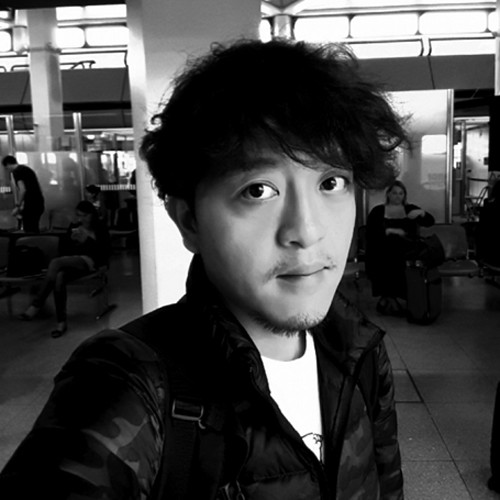
Sammy Huang is an independent film producer, who often works in the area of LGBT+ topics, either here in his native Taipei or in his second home Berlin.
Eat
I’d always choose our heritage street-markets, but if you’re up for something different, head to Fireweeds for Japanese-Taiwanese fusion set in an 80-year-old house.
Browse
No trip to Taipei is complete without a trip to the Shilin Night Market. Even if you can’t stomach the street-food, this place is a feast for the eyes as well as the belly.
Fly
The ferry journey to Penghu can be somewhat arduous – as Zack found out. I’d say it’s worth the trip, but if you’re no sailor, you’d be better off flying from Taipei.


